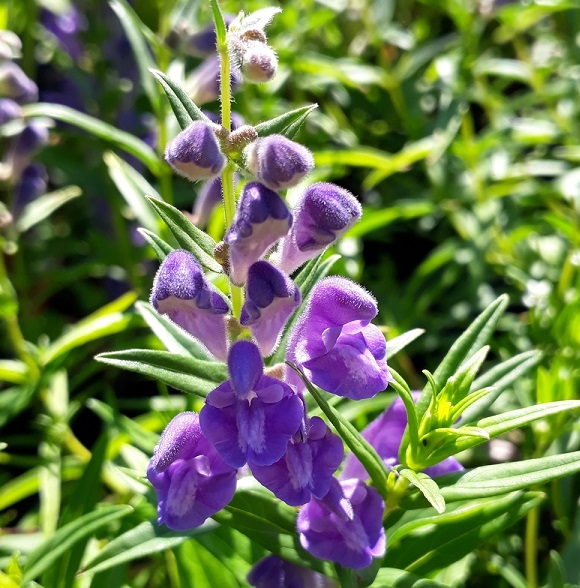
Marsh Skullcap
Scutellaria galericulata
Scutellaria galericulata, the Common Skullcap, Marsh Skullcap, or Hooded Skullcap is a perennial waterside plant native to the temperate northern hemisphere of Europe, Asia and Canada. Generally, it grows close to rivers, lakes, and marshes.
According to several ethnopharmaceutical studies seems that the Common Skullcap has been used in the traditional medicine of Asia, North America, and Europe as a sedative and diuretic agent.
Today we know that his effect as a mild anxiolytic and nerve tonic is due to its high content of flavonoids. Skullcap herbs are widely used to relieve temporary symptoms of stress and insomnia; in association with Chamomile (Matricaria recutita) improve the quality of sleep.
In Europe is used as a substitute for Scutellaria laterifolia (Blue skullcap) because the two species share many chemical compounds.
Benefits of Skullcap
- Mild-anxiolytic
- Sedative
- Relieve stress
- Improve sleep quality
- Diuretic

For herbal tea:
Use 2-4 g of dried Skullcap (stem and leaves) for each person. Leave in infusion for 5-7 minutes. Suggested dose max 3 times/day.
Skullcap can be used as a base to prepare a delicious and healthy herbal tea mixing other plants, roots, and dried fruit. The taste of Skullcap is delicate and herbaceous
| Possible association with Skullcap | Effect |
|---|---|
| Damiana – (Turnera diffusa) | Anti-anxiety |
| Chamomile (Matricaria recutita) | Improves sleep |
| Yarrow (Achillea millefolium) | Anti-inflammatory |
Reference:
- Phytopharmacy: An Evidence-Based Guide to Herbal Medicinal Products (2015) – Sarah E. Edwards, Ines da Costa Rocha, Elizabeth M. Williamson, Michael Heinrich / p. 357-59
- Chemical variability of common skullcap (Scutellaria galericulata L.) wild growing in the area of eastern Poland – OLGA KOSAKOWSKA, KATARZYNA BĄCZEK, JAROSŁAW L. PRZYBYŁ, EWELINA PIÓRO-JABRUCKA, ZENON WĘGLARZ
Sitography
